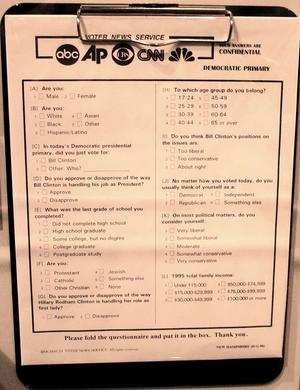Polling data is ubiquitous in today’s world, but it is is often difficult to easily understand the accuracy of polls. In a recent paper published in Political Analysis, Kai Arzheimer and Jocelyn Evans developed a new methodology for assessing the accuracy of polls in multiparty and multi-candidate elections.
Source: Polling accuracy: a Q&A with Kai Arzheimer and Jocelyn Evans | OUPblog
Oldies but goldies. For installing/updating the ado, checkout SSC. And here is even more background material on surveybias.


